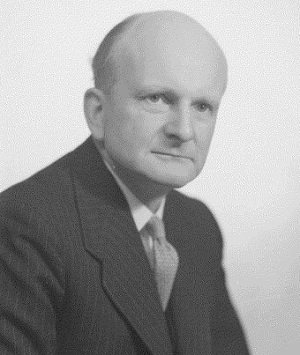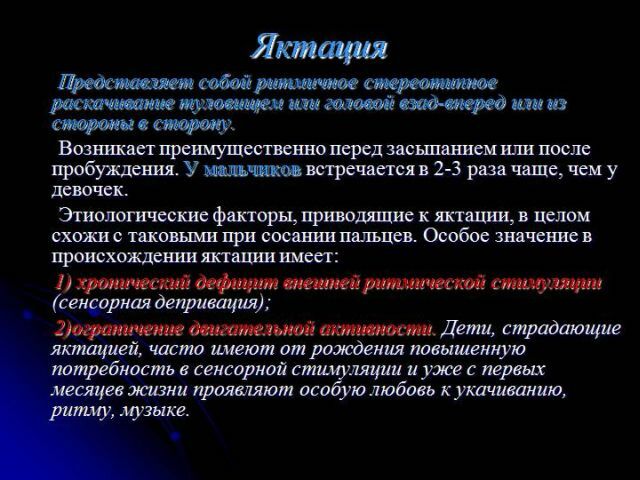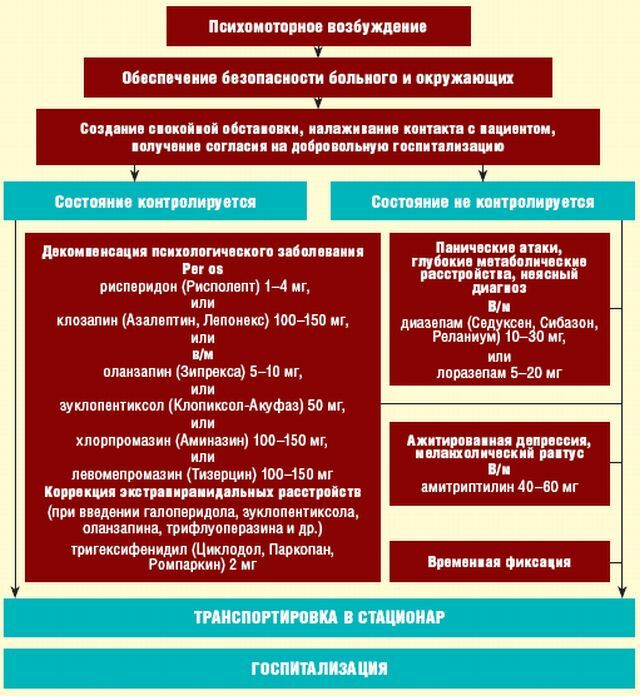 In medical practice, there are sometimes patients who deliberately harm themselves or consciously cause suffering.
In medical practice, there are sometimes patients who deliberately harm themselves or consciously cause suffering.
Such people seem heavy sick, exaggerate the strength of their suffering, provoke symptoms to undergo examination, go to hospital and very often insist on surgical intervention. But this is not a disease, but a simulated behavior disorder, provoked by a child's trauma.
Contents
- Unusual story from real life
- Rooted in childhood
- Options for simulated behavior
- So different Munchhausen
- To diagnose - task for professional
- Involuntary children Munchhausen
- Who is at risk
- What can I do and can I?
- Summing up
Unusual story from real life
The name "Munchausen syndrome"( Munchausen syndrome) was introduced in the 50s by the British physician Richard Asher in his article in the journal Lancet.
He outlined his patients, inclined to invent and even provoke signs of various diseases.

Richard Asher
Given the name of the syndrome, Asher took as the basis for the famous liar and visionary Baron Munchausen from the book of Rudolf Raspé, written in the 18th century. Of course, people with Munchausen's syndrome do not tell stories about deer with cherry trees instead of horns, about their flights to the moon or stay in the womb of a huge fish.
They talk about imaginary illnesses, constantly complain, require treatment. Such people can not be dissuaded from anything. They do not want to be healthy. They go to all sorts of tricks and commit inappropriate actions in order to achieve what they want.
For example, the patient skillfully simulates all the symptoms to have an operation. He is convinced that only a scalpel will save him. If doctors refuse to cut it, he insists, threatens.
Professionals also refer to this condition as "occupational sick syndrome", "hospital addictive" or "imitating disorder".
Rooted in childhood
The reasons for the simulative disorder are not fully established. Basically, this affliction affects the children who are not in love, who in their childhood lacked warmth, love, affection. Especially if children were often subjected to mental and physical violence.
But the main cause of the syndrome is mental problems. This is not a simple simulation or even a disease, but a borderline state.
It appears only in a certain type of people, which has the following features:
- hysteria and heightened emotionality;
- superficial feelings;
- demonstrative behavior, inadequate cause of illness;
- extreme suggestibility and self-hypnosis.
Such people tend to hide from problems: instead of solving them, they prefer to go into illness. As a child, they encountered a situation when, at the moment of illness, the attitude of the parents to them changed dramatically. And they started using the disease as a way to get attention, care, psychological support, indulgence to whims, freedom from worries and hassle.

Variants of the simulative behavior of
Modern Munchhausen consciously forges various symptoms, constantly stay in different hospitals. They are usually called "hospital flea" or "professional patients".
In the mass of it's very clever, resourceful people. They know all the symptoms of their illness thoroughly, skillfully simulate it. Knowing the methods of diagnosis and treatment, can manipulate the doctor, convince of the need for treatment, deep examination, even surgery.
But, despite the fact that all their actions and actions are conscious and thought out, the motives for their behavior are unconscious. An endless stream of symptoms and complaints, sometimes implausible, painful pains, persistent demands for treatment or operation.
 Patients feign any disease, depending on their awareness and ability to mimic those or other symptoms.
Patients feign any disease, depending on their awareness and ability to mimic those or other symptoms.
On the body, they have surgical scars, since they often artfully depict surgical problems. They usually ask for help at night or at the end of duty, choose young inexperienced doctors, because an overworked or inexperienced doctor can not always catch small inconsistencies, there is more chance to recognize the simulation as a real picture.
Some, on the contrary, tend to get to the best doctors to show that they have a rare and complex case. Categorically deny the simulation, if you try to expose them.
Such different Munchausen
"Munchhausen" constitute from 1 to 9% of all mental patients. The age range is not defined exactly, but the peak of the disease falls on 15-30 years, mainly the syndrome affects men. They are aggressive, restless. Women have hysteria, hidden complexes. These patients are important in the treatment process, but they do not want to heal.
Asher identified 3 variants of the development of Munchausen's disease:
- Acute abdominal type( laparotomophilia) .The most numerous. Signs of "acute abdomen", on the body of scars, insisting on a new operation. There are no indications for hospitalization. After being refused, such people can enter another clinic with a "sharp abdomen" on the same night. To obtain the desired, sometimes swallow sharp objects.
- Hemorrhagic ."Hysterical" bleeding from different parts of the body with a threat to life. Sometimes they deliberately injure themselves, and the blood of animals is applied to the body.
- Neurological type .Acute neurologic manifestations: severe headaches, paralysis, unusual gait, convulsive seizures. Some want to have an operation on the brain.

To diagnose - a task for professional
Diagnosis is very difficult. These patients know all the symptoms, convincingly imitate them. A thorough examination and additional examinations are needed to ensure that there are no somatic pathologies.
Basically, various fevers are feigned, hemoptysis, vomiting, diarrhea. If there is a room near the office of any specialized specialist doctor, the patient will feign illness in this area.
Sometimes it is necessary to study the previous medical history, apply to other medical institutions, in which the patient used to be. We need to explore the picture of life and treatment.
The difficulty lies in the fact that patients with Baron Munchausen's syndrome categorically deny the possibility of examination from a psychiatrist and the subsequent treatment.
Sometimes there are crisis conditions, when the patient is aware of his condition and inclinations, agrees to help a psychologist or psychiatrist.
The forced children of the Munchausen family
In 1977, the psychiatrist R. Meadow described the version of Munchausen's syndrome - "by proxy"( according to the witness, by proxy).
Munchausen's delegated syndrome is the most dangerous form, because a person with a delegated form of the disease sometimes completely loses the sense of reality.
This syndrome is affected by parents or caring for weak relatives. More women suffer: this is usually a mother or wife. They are called MSBP-identities. They provoke pathological conditions, invent illnesses for those for whom they take care. Usually it is bleeding, seizures, diarrhea, vomiting, infection, poisoning, choking, fever, allergies.

Methods of determining MSBP-identity:
- if the mother, guardian or wife is not around, the signs of pathology do not appear;
- if the doctor has not determined the illness or violation, then discontent appears;
- The primary diagnosis given by a doctor is a very rare disease;
- the mother encyclopedic medical knowledge;
- is a very caring( pathologically) mother, who does not leave her child for a minute;
- to treat is very difficult, because the symptoms of the disease are contrived, and the victims are subjected to unnecessary manipulation, sometimes dangerous to health.
The delegated syndrome is extremely dangerous. Harm is applied so as not to leave evidence: to cause suffocation, the child closes his mouth with his hand, with his fingers nuzzles, lie on the child or cover his face with plastic wrap.
Keep in the mouth medicine and food forcibly, increase the dose or inject unnecessary funds, deliberately delay the call of the ambulance.
When the victim is on the verge of destruction, the tormentor begins to take measures to save himself, in order to receive praise and attention.
It is impossible to convince them of wrong, they deny their guilt even with incontrovertible evidence. Always refuse the help of a psychiatrist.
People who guess that they have a "delegated baron" with them, do not always voice their suspicions, being afraid of making a mistake. The torturers know about it and use it. They are believable, they say convincingly.

Who is at risk
Selfishness, self-deportation, attraction to vagrancy, perverse lies, underdeveloped emotional sphere, communication difficulties, hypochondria are the characteristic symptoms that point to people with Munchhausen's syndrome. They have an increased need to attract attention. They express dissatisfaction with everything and everyone.
Sometimes these are non-citizens who want to get some pills, for example, drugs or take refuge from punishment, find shelter for the night.
Often these are mothers and wives who are unhappy in marriage, they have little communication, attention. As a child, most of the patients were subjected to moral and physical violence. Many have mental illnesses. They show an increased interest in special medical literature.
Nurse or nurse with Munchhausen's disease is especially dangerous. Usually such women act for the sake of praise and encouragement from the relatives of the child or the infirm of care and salvation. It is difficult to bring such people to justice. There is no legislative base.
What can I do and can I?
Treatment of Munchausen's syndrome is very complex and almost always futile. Patients are happy if they are treated, but discontent is growing if they are refused treatment or surgery. Often begin to dictate to the doctor what to do.
It is necessary to treat them gently, without causing feelings of guilt, not aggressively, not punishing.
Treatment is limited to: 
- qualified diagnosis;
- exception of pathologies;
- prevention of unnecessary surgeries, medical procedures and medications.
When a syndrome is delegated, it is necessary to bar such a baron from accessing the victim so as not to expose the life and health of the child or the frail further danger. These are very difficult patients. Their disease can be assumed, but it is difficult to prove without comprehensive examination and long observation.
Summing up
The severity of the "eternal patient" syndrome is that patients do not realize that something is wrong with them. Everything that happens is for them a habit, an obsession. The syndrome may increase over time, the frequency of hospital visits increases.
Particularly dangerous is the delegated form of the syndrome. Here we are already talking about the life and health of others, in anything not wine people, especially children. Therefore, it is necessary through the court to determine a person for compulsory treatment or to restrict freedom of action.
Such persons should be constantly observed at the psychiatrist, treated, even if forced. Otherwise, with the aggravation of the condition, a person can cause serious injuries or even die.
Prevention is almost impossible, because barony is caused by mental disabilities. Considering the fact that most patients are former children who have not received their love and affection from their parents in their childhood, one can recommend parents to be more gentle and attentive to their child.
To show concern, to be interested in those people who surround. After all, many patients just want to receive from others more attention and approval.



